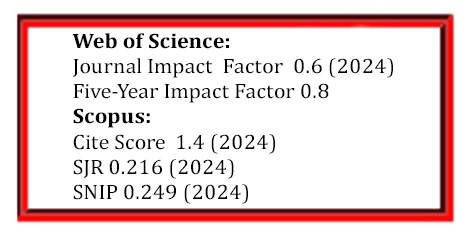The Influence of Algae as a Bioactive Additive on the Properties of Suspension Fertilizers
DOI:
https://doi.org/10.5755/j01.ms.26.4.23457Keywords:
suspension fertilizers, algae, clay, fine particle, stabilityAbstract
Algae contain essential plant nutrients, various microelements and bioactive substances promoting full supply of nutritious substances to plants during their entire vegetation period. They are attractive because their cultivation does not require plots of agricultural land, and they use carbon dioxide as well as nitrogen and phosphorus compounds to accumulate biomass. Besides, they are environment-friendly and their use makes it possible to create a closed cycle. Chemical composition of algae shows that they are suitable for use as a fertilizer component, because they have no aluminium or silicon, and heavy metal concentration does not exceed permitted limits. The particles 106 – 212 μm in size contain mostly (65.4 %) algae, and are irregular in shape. By using algae, fine sediment remains in suspension 4 times longer and settles slowly to the bottom (with 4 % clay additive, the solid phase settles in 40 min, and with 4 % algae – in 130 min). Stable NPK 12-4-18 suspension fertilizers suitable for use during a warm period were obtained with 3.5 % algae additive. The main properties of such suspensions are: pH 6.3; crystallization temperature + 8.21 °C; density – 1226 kg/m3,
viscosity – 7.32 mm2/s.
Downloads
Published
Issue
Section
License
The copyrights for articles in this journal are retained by the author(s), with first publication rights granted to the journal. By virtue of their appearance in this open-access journal, articles are free to use with proper attribution in educational and other non-commercial settings.



